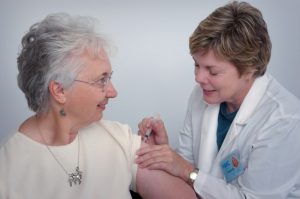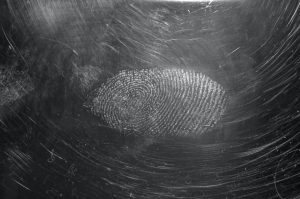What Is an Infection Control Nurse?
 As all nurses are trained to prevent the spread of infectious diseases, infection control nurses specifically specialize in preventing the spread of infectious agents such as viruses and bacteria. With no two bacteria alike, infection control nurse works diligently to prevent dangerous outbreaks from occurring in a hospital setting. All medical professionals are trained to take standard precautions that include hand hygiene, use of personal protective equipment, and isolation precautions according to the patient being cared for. Even so, such precautions do not completely eliminate the possibility for infectious agents to spread. It is an infection control nurse’s job to perform and educate others on how to prevent and contain outbreaks and to prevent further incidents from occurring.
As all nurses are trained to prevent the spread of infectious diseases, infection control nurses specifically specialize in preventing the spread of infectious agents such as viruses and bacteria. With no two bacteria alike, infection control nurse works diligently to prevent dangerous outbreaks from occurring in a hospital setting. All medical professionals are trained to take standard precautions that include hand hygiene, use of personal protective equipment, and isolation precautions according to the patient being cared for. Even so, such precautions do not completely eliminate the possibility for infectious agents to spread. It is an infection control nurse’s job to perform and educate others on how to prevent and contain outbreaks and to prevent further incidents from occurring.
How Do I Become an Infection Control Nurse?
Top of Form
Bottom of Form
Upon graduating with a bachelor’s of nursing degree and passing the National Council Licensure Examination for Registered Nurses (NCLEX-RN), one can secure a position in infection control after obtaining some experience in the nursing field.
What Are the Education Requirements for Infection Control Nurses?
The education requirement to become an infection control nurse is to earn a Bachelor’s of Science in Nursing (BSN) degree. Although a nursing diploma or an Associate’s Degree in Nursing has been the minimum requirement, many employers prefer graduate nurses to obtain a bachelor’s degree in nursing. A BSN degree typically takes four years to complete in a university or college.
Are Any Certifications or Credentials Needed?
With the proper nursing degree and a couple years of experience under one’s belt, the nurse will then be eligible to sit for the certification exam with the Association for Professionals in Infection Control and Epidemiology (APIC).
The expertise of an infection control nurse is needed in the following healthcare settings:
- Hospitals
- Long-term care facilities
- Home Care
- Ambulatory Care
- Hospices
- Emergency Preparedness
- Public Health
- Behavioral Health
The role of an infection control nurse is to determine, prevent, and contain infectious outbreaks in the healthcare setting. Even in a sterile and sanitary environment, an infection can easily spread causing patients to become ill and possibly die. In order to prevent the spread of this infection to a large area, it is the job of an infection control nurse to not only contain these agents within a hospital community but also to prevent such illnesses on a larger scale.
What Are the Roles and Duties of an Infection Control Nurse?
With advanced skills and knowledge, the responsibilities of an infection control nurse include:
- Gathering and analyzing infection data, facts and trends to other healthcare personnel.
- Providing training and education to other medical professionals and civilians on prevention techniques.
- Develop plans to prevent patients from spreading diseases throughout the hospital or other patient care facilities.
- Often acting as a coordinator or leader of an Infection Prevention and Control (IPC) Program.
- Reinforcing the implementation of infection control practices as provided in the guidelines of the CDC(Center for Disease Control and Prevention).
- Bringing rates of infection down within a facility.
- Determining the origin of a particular pathogen by studying the makeup and composition of it.
- Working side by side with scientists and doctors to develop treatments for other infectious diseases.
Infection Control Nurse Salary & Employment
Infection control nurses can earn between $77,403 and $92,923 annually. The median salary for an RN in Infection Control is $84,794 per year. As the salary can vary widely depending on many factors, it is important to keep in mind the type of employer, years of experience, and state when comparing salaries.
Potential nurses should be experienced in proper chemical disinfection and sterilization practices. As a big part of one’s role as an infection control nurse is to instruct and educate patients and hospital staff, one should be comfortable with public speaking and giving direction. As an effective infection control nurse is a big asset to a healthcare facility, these nurses can find employment through hospitals and health care centers.

 A healthcare administrator plays a key role in the operations of a healthcare organization, managing a variety of clinical and administrative procedures. They typically have oversight over an entire department or area in terms of budgets, staffing, professional development, maintenance of patient records, and ensuring compliance with regulations. This is a good position for someone who has an interest in healthcare but may possess more business acumen than clinical knowledge.
A healthcare administrator plays a key role in the operations of a healthcare organization, managing a variety of clinical and administrative procedures. They typically have oversight over an entire department or area in terms of budgets, staffing, professional development, maintenance of patient records, and ensuring compliance with regulations. This is a good position for someone who has an interest in healthcare but may possess more business acumen than clinical knowledge. Home health nursing is a specialty available to registered nurses (RNs) as well as licensed vocational nurses (LVNs), and nurse assistants. A home health nurse is responsible for caring for patients in their homes, performing various tasks if patients and/or their families are unable to care for themselves. Skills from many different specialties are necessary in the field of home health:
Home health nursing is a specialty available to registered nurses (RNs) as well as licensed vocational nurses (LVNs), and nurse assistants. A home health nurse is responsible for caring for patients in their homes, performing various tasks if patients and/or their families are unable to care for themselves. Skills from many different specialties are necessary in the field of home health: Holistic Nursing refers to a kind of nursing practice that focuses on treating the patient as a whole as opposed to merely treating the symptoms of their present condition. A holistic nurse, also called a complementary health nurse, is a board-certified RN who takes a mind-body-spirit-emotion approach to the practice of traditional nursing. Holistic nurses often employ alternative forms of medicine alongside traditional Western medicine in their practice. This may include dietary advice, therapeutic massage, breathwork, and meditation therapy. Those practicing
Holistic Nursing refers to a kind of nursing practice that focuses on treating the patient as a whole as opposed to merely treating the symptoms of their present condition. A holistic nurse, also called a complementary health nurse, is a board-certified RN who takes a mind-body-spirit-emotion approach to the practice of traditional nursing. Holistic nurses often employ alternative forms of medicine alongside traditional Western medicine in their practice. This may include dietary advice, therapeutic massage, breathwork, and meditation therapy. Those practicing  For those who are thrilled by health and medicine, but prefer a role on the more administrative side of operations, becoming a healthcare manager could be a great career opportunity. Healthcare managers often blend the business and health sectors together, working alongside providers to oversee the planning, budgeting, and policy needs of an institution. This type of position will typically require great time management abilities, interpersonal skills, and strong communication.
For those who are thrilled by health and medicine, but prefer a role on the more administrative side of operations, becoming a healthcare manager could be a great career opportunity. Healthcare managers often blend the business and health sectors together, working alongside providers to oversee the planning, budgeting, and policy needs of an institution. This type of position will typically require great time management abilities, interpersonal skills, and strong communication. Many would argue that our current healthcare system needs reform to ensure that ever-growing patient care needs are met timely, safely, and efficiently. Nurses have worked to influence healthcare laws and policies ever since the field of nursing began. Therefore, those who are interested in ways to create and facilitate change in healthcare may wish to pursue a rewarding career as a Health Policy Nurse.
Many would argue that our current healthcare system needs reform to ensure that ever-growing patient care needs are met timely, safely, and efficiently. Nurses have worked to influence healthcare laws and policies ever since the field of nursing began. Therefore, those who are interested in ways to create and facilitate change in healthcare may wish to pursue a rewarding career as a Health Policy Nurse. Geriatric nurse specializes in the care of older patients and is a crucial part of the healthcare team in helping older adults maintain their mobility, independence, and quality of life. They are trained to anticipate the needs of aging adults and work closely with primary care physicians, attending physicians, social workers, and families to provide individualized care to elderly patients. Geriatric nurses focus on age-related diseases and health concerns, including the following:
Geriatric nurse specializes in the care of older patients and is a crucial part of the healthcare team in helping older adults maintain their mobility, independence, and quality of life. They are trained to anticipate the needs of aging adults and work closely with primary care physicians, attending physicians, social workers, and families to provide individualized care to elderly patients. Geriatric nurses focus on age-related diseases and health concerns, including the following: A genetics nurse is an RN with additional training and education in genetics. Genetic nurses care for patients who are at risk for or are affected by, diseases with a genetic component including cancer, heart disease, diabetes, and Alzheimer’s disease among others. In addition to providing direct patient care, genetics nurses also perform risk assessments, analyze the results and counsel patients on the ongoing management of their conditions or conditions they may be at risk for. Within the highly scientific and research-based specialty of genetics, the genetics nurse plays an important role as patient advocate and compassionate support system.
A genetics nurse is an RN with additional training and education in genetics. Genetic nurses care for patients who are at risk for or are affected by, diseases with a genetic component including cancer, heart disease, diabetes, and Alzheimer’s disease among others. In addition to providing direct patient care, genetics nurses also perform risk assessments, analyze the results and counsel patients on the ongoing management of their conditions or conditions they may be at risk for. Within the highly scientific and research-based specialty of genetics, the genetics nurse plays an important role as patient advocate and compassionate support system. A gastroenterology nurse (gastrointestinal, or GI) is an RN who specializes in illnesses and disorders related to the entire GI tract. GI nurses also assist physicians with procedures, education, and treatments. Some of the disorders they are familiar with are:
A gastroenterology nurse (gastrointestinal, or GI) is an RN who specializes in illnesses and disorders related to the entire GI tract. GI nurses also assist physicians with procedures, education, and treatments. Some of the disorders they are familiar with are: Forensic nurses specialize in caring for patients who are the victims of trauma, violence, and abuse. They have a foundation in the criminal justice system as well as nursing. They are on the front lines when victims of crimes need help the most, providing sensitive, compassionate care while meticulously collecting relevant evidence that may be needed later in court. Some forensic nurses choose to specialize in sexual assault/trauma by becoming certified as Sexual Assault Nurse Examiners (SANE).
Forensic nurses specialize in caring for patients who are the victims of trauma, violence, and abuse. They have a foundation in the criminal justice system as well as nursing. They are on the front lines when victims of crimes need help the most, providing sensitive, compassionate care while meticulously collecting relevant evidence that may be needed later in court. Some forensic nurses choose to specialize in sexual assault/trauma by becoming certified as Sexual Assault Nurse Examiners (SANE).